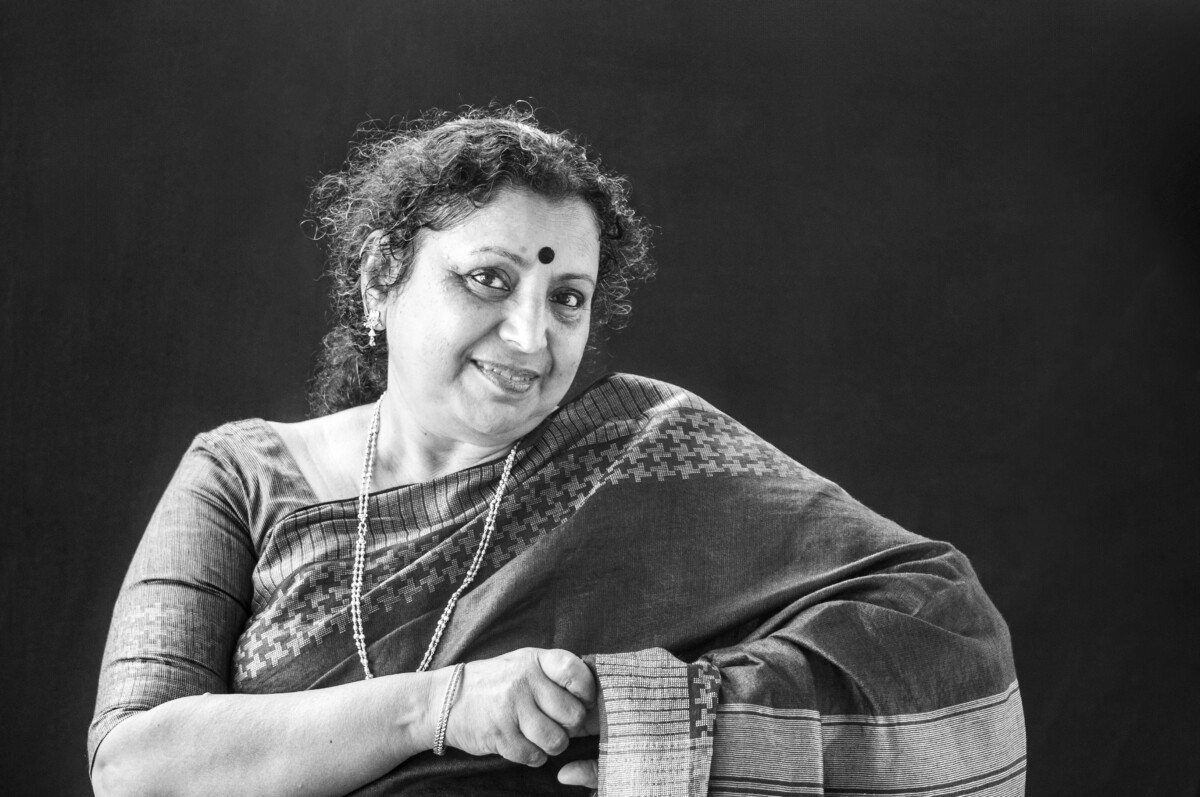Tue, Mar 3, 2026
Culture & Lifestyle
A Tale of Survival in the Wilderness
Gutthi, a young Dalit vassal is wrongfully accused of assaulting a collection agent. But he gives the slip to the two policemen chasing him and runs for his life. This trying experience affords him an epiphanic moment of spiritual transcendence.
bookmark![]()
Vanamala Viswanatha
Published at : December 3, 2024
Updated at : December 3, 2024 10:14
Despite rain pattering on the leaves in the dense forest, Gutthi can still hear the piteous voice of Bushy Mush, the Police Dafedar with a thick moustache, crying out for help from the bog in the lakebed. He can also hear Scraggy Mush, the young sergeant, trying to surround him from the roadside, cursing. Gutthi runs, runs without stopping. He runs up the hill through the forest, heedless of the painful, festering gash caused by Ijara Sabi’s club. His only aim is to run as far away, as fast as possible to escape from the peril that is pursuing him, impervious to questions like: Where? Which way?
When his blanket cloak gets caught in the thorns, he yanks it off the bush running, and shoves it under his arm. When his head gear is caught in a sharp thorny bush tearing it, he just pulls it off, uncaring, and wears it around his waist, still running. Minus the cloak and head-cloth, he is now completely drenched from top to toe. He has not even noticed that his face, scratched by a sharp twig, has started bleeding. When a stubble jams his foot, he stops for a moment to pluck it off; he has no time to notice that his foot is bleeding. He does not even bother with the army of leeches that has invaded every part of his body, creeping up his legs and surrounding his waist, thighs and loins. The heavy sweat pouring down his heaving chest mingles with the rainwater falling on his head, dripping down, turning his shirt and dhoti into a wet bundle.
How long has he been running? Gutthi has no idea. At some point, when he feels in his heart that he is out of danger, he throws his cloak aside on the log of an ancient tree fallen in the middle of the jungle and sits down panting. His one-eyed and four-legged devotee, also utterly drenched, tries to sit at his feet, but soon, in order to escape from the menace of the leeches, it jumps on the log, and settles down next to his master, looking taller than him. Some liquid— saliva or water—starts dripping from its tongue. The master’s consciousness is in no position to register the steam or the fetid smell emanating from its wet, hairy body.
What has he done? What has happened to him? It takes Gutthi quite some time to grasp. Once he regains his breath, he is able to think calmly. His present strategy to escape seems more dangerous than the danger he has escaped from: What if Bushy Mush has drowned in the bog and died? What if Scraggy Mush, trying to save his boss, also sank in the bog? Won’t they hold him responsible for the crime and lead him to the gallows? They must have already begun a search for him. Where can he hide? And how? He could possibly cross the river, flee to regions like Muthur or Koppa or Mundakaru, change his name, and not show up in this region for a couple of years. By then, hopefully, the dust would have settled, and all this will be forgotten. But, but, what about Thimmi, his girl Thimmi? Just the thought of Thimmi makes his nerves weak, and he feels sleepy and exhausted. His natural dynamism suffers a paralysis. In that terrifying jungle, in the ruthless apathy of the towering trees piercing the sky, in the horrendous lonesomeness of the torrent that has just let up, he feels his helpless isolation mocking at him, and Gutthi breaks down sobbing, holding onto his devoted dog Huliya, sitting next to him—taller, firmer, and braver, and drawing strength from Huliya’s powerful sinews to boost his sagging spirit. He had never wept like this before. Not quite comprehending his mood, Huliya responds to his master, somewhat playfully.

Why not take Thimmi along and flee? But how? The news had already spread that Bettalli Kallayya Gowdaru had cunningly sent her parents and brothers to get her back home with the intent of marrying her off to someone else. When this is so, if Gutti appears in the Bettalli settlement, would they spare him? Won’t they take the first opportunity to hand him over to the police? Ayyo . . . what sin did he commit in his last life to deserve this? Otherwise, why should these things have happened? Why did those Muslims bring their ware that very day to Simbavi? If that perverted bastard Ijara sabii had not killed his household’s pregnant doe, why would Gutthi get into a ruction with the Muslim fellow? It’s all that Muslim’s doing, but he is paying the price. It is Sanna Bira who threw the knife at the Sabi. No one will believe his words. They’ll only say, ‘Where does that wimpy guy have the strength to throw?’ Is it Gutti’s fault that he is strong? He must have committed grave sins in his last life and so he is being punished now.
All of a sudden, the thought flashes across Gutti’s mind. If he hadn’t been a Holeya, from that wretched low caste, would he have to face this fate? What if he belonged to some other caste? Gowda? Vaishya? Brahman? No way is that possible, not in this life. Or he could have been a Muslim? Or a Christian? Thoo . . . thoo . . . thoo,’ he spits out, rejecting a possibility that crosses his mind. Yet, he is reminded of the padre’s prayers and snatches from his sermon that evening as the sun was setting, after Devayya’s bicycle lessons in the Bettalli clearing. Along with it, the memory of the words of wisdom offered by Mukundayya and Aigalu while reading out episodes from the Ramayana and the Mahabharata rush into his mind. Some of the thoughts he had grasped from watching the Bhagavata’s performance also surface from his subconscious mind as companions in distress to save him in his most trying moment. Gutthi then stops crying. Taking a deep breath, as if he is drawing in courage, Gutthi sits up and pleads with God in his own crude way, but full of ardent feeling and devotion. His God is as complex in nature: being embodied and being disembodied, taking this form and that. His God is all of it, yet none of it, except for being an entity filled with Gutthi’s feelings, just the sum total of all of Gutthi’s ardent feelings . . . enough to make any Vedantin’s philosophy shudder. But surely, the heart-felt prayer of the Holeya, an expression of his fervent appeal, ascends to the lotus-feet of God.
Published in special arrangementwith TheWire.in
Most Read from Culture & Lifestyle
Editor's Picks
Five and half decades of KP Oli in Nepali politics
How Facebook’s algorithm is amplifying one party over all others
Nepal’s IT exports near $1 billion. Can the momentum be sustained?
Parties’ lofty pledges on economy collide with hard realities
Upper house passes tourism bill with tougher Everest rules
E-PAPER | March 03, 2026
×




 9.7°C Kathmandu
9.7°C Kathmandu

.jpg&w=200&height=120)













